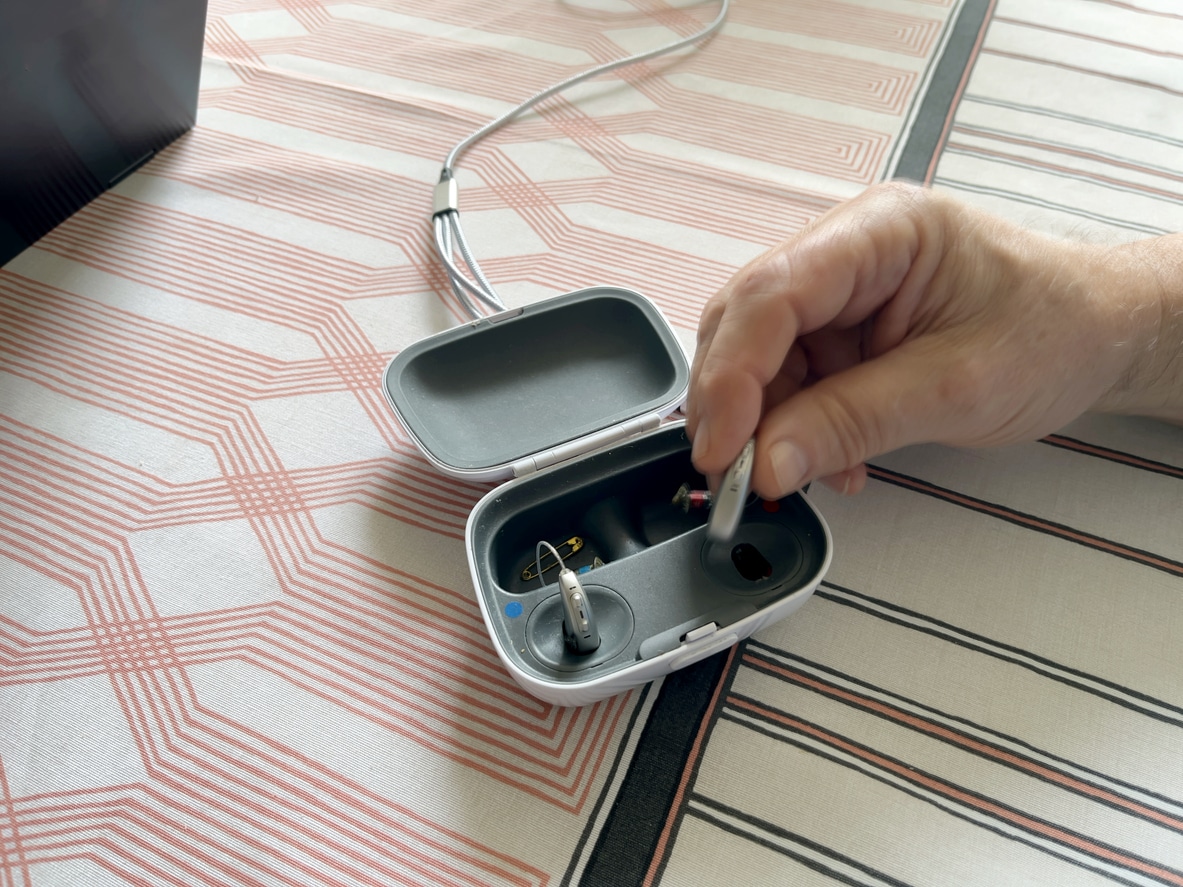Almost everyone’s had a close call between electronics and water. Maybe your headphones slipped into your drink at Nature’s Way Juice Bar, or your phone took a surprise dive into the toilet. Unfortunately, hearing aids are no stranger to these kinds of accidents.
Approximately 28.8 million U.S. adults could benefit from hearing aids. Moisture is a big concern for people who rely on these devices to provide clear communication. When your devices are at risk of water damage, a hearing aid drying jar or dehumidifier can be a game-changer.
How Does a Hearing Aid Drying Jar Work?

A drying jar, also called a passive dryer, is filled with small desiccating beads that suck the moisture out of electronic devices. It works similarly to putting your phone in a bag of rice. To use a drying jar, place your hearing aid or hearing aids in the jar and leave overnight.
How Does an Electric Dryer Work?
Electric dryers dry your devices using heat and a fan. Some electric dryers also have a sanitizing feature that kills bacteria and germs with UV light.
How Do I Know Which Is Right for Me?
There are a few things to keep in mind when choosing a hearing aid dryer:
- Level of water exposure. Drying jars are a great option to draw daily moisture from your devices. Electric drying jars may be better at removing larger amounts of moisture, like from complete submersion or heavy rain.
- Frequency of use. The desiccating beads in drying jars will need to be replaced regularly. An electric drying jar should last a couple of years.
- Frequent ear infections. Frequent ear infections can stem from devices with too much moisture or bacterial buildup. Drying jars are great for daily moisture removal, but don’t sanitize your devices. If you get frequent ear infections, an electric dryer with UV light might be better.
- Rechargeable hearing aids. Because rechargeable hearing aids require nightly charging, a drying jar might not be the best option, as it works overnight. Opt instead for an electric dryer with a fast drying time. Double-check that you can use the dryer without removing your device batteries.
Consider these four things when choosing a hearing aid dryer. Some people may purchase both, one for daily use and one for emergencies. Others may find enough help from just one option. Your hearing aid specialist can help you find the right option to suit your needs.
Contact Ear, Nose & Throat Consultants today to schedule an appointment with one of our hearing aid specialists.